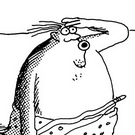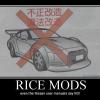Announcements
-
Similar Content
-
Latest Posts
-
By soviet_merlin · Posted
This coming up today. See you there! -
By littlegee121 · Posted
Thanks for the confirmation, ok so now it makes sense, and so the instructions are incorrect for the module. -
Duty sets the boost level. The duty number != boost, it is just a number between 0% doing something and 100% doing something. More number = more boost. Gain and p gain are used to help account for boost creep or drop off. The details vary from controller type to controller type (ie, the Profecs use similar terms but achieve their results slightly differently.) The manual should explain all that. These controllers are dumb in that they do not control to a boost target. They are open loop. You need to adjust settings until it is doing what you want. If the performance of the motor, boost control system, elevation, weather, etc change, then the boost can and will come out to a different result on the same controller settings.
-







Recommended Posts
Create an account or sign in to comment
You need to be a member in order to leave a comment
Create an account
Sign up for a new account in our community. It's easy!
Register a new accountSign in
Already have an account? Sign in here.
Sign In Now